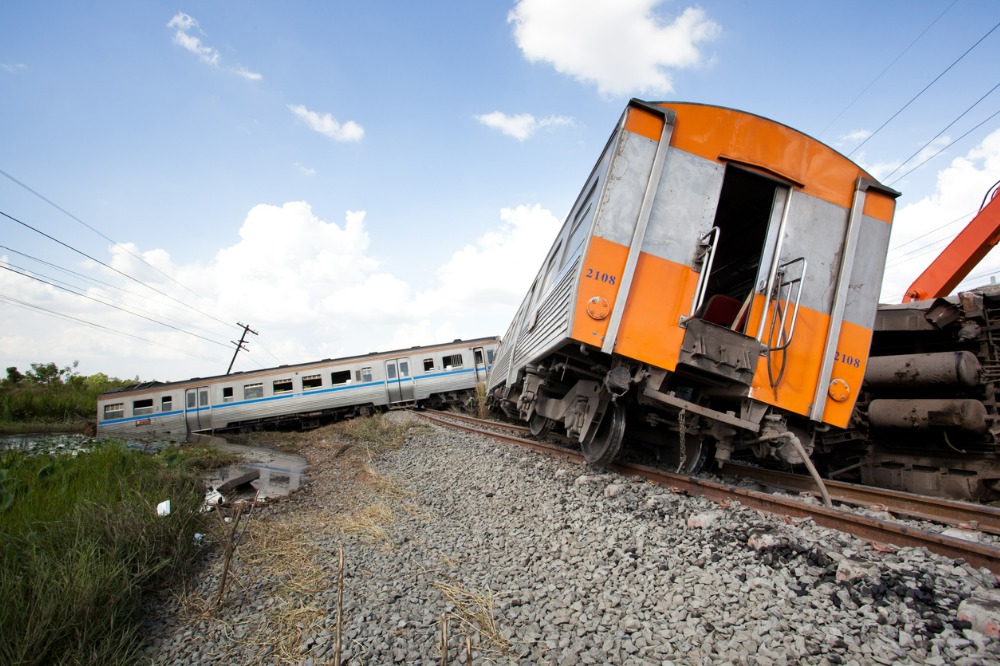"This tragedy in Ohio is something different" – Crawford’s Law

The earthquakes in Syria and Turkey, an offshore oil spill or the reckless abandon of a wildfire are a few examples that provide newsworthy headlines while also introducing a variety of claims and concerns for loss adjusters to assess.
The train derailment and subsequent burning of caustic chemicals contained in the freights in East Palestine, Ohio, is another more recent occurrence that has various ramifications for insurers and most importantly, residents of the town.
Proceed with compassion
For Michael J. Law, vice president at Crawford Global Technical Services and a loss adjuster with years of experience in the field, the first and most important step in assessing a situation like that in Ohio is approaching with a benevolent attitude.
“When you’re dealing with folks that have experienced this kind of event, the most important thing to have is empathy, immediately” Law said. “You have to put yourself in their shoes and understand the deep frustration and innate fear that these people are experiencing right now, especially with all the variables and unknown outcomes as a result of this derailment and the burning of caustic chemicals.”
From an insurance standpoint, a loss adjuster must understand how the entirety of the town will be affected, especially for both property and business owners.
“Nobody’s going to restaurants, buying anything at convenience stores or getting gas, which puts a strain on local operations being able to continue to provide services” Law pointed out.
“People will also have to re-evaluate whether to relocate to another town, but where are they going to go when their biggest asset is now worth nothing? Mortgages must still be paid.”
Uncommon circumstances
While natural disasters of various severities have become the norm in the current era, instances like this in Ohio are a relative anomaly.
“We’re used to seeing naturally occurring events, whether it be hurricanes, ice storms especially in places where they don’t happen as often, as well as torn-down buildings” Law said. “But this tragedy in Ohio is something different and you must be mindful of the long-term effects on the town. Will people’s businesses be able to bounce back, will the land be deemed toxic and unliveable?”
Having monitored the situation from various news outlets and firsthand accounts, Law observed that “on the homeowner side and the personal lines claims, we’ve been seeing vehicles and homes that have a lot of soot build up.”
However, these more aesthetic concerns pale in comparison to the environmental impacts that are more pressing. Residents have become weary of trusting the air they are breathing and the water they are told is safe to consume, which unfortunately, is not an easy solve for insurers or health officials.
“There will most likely be a lot of water and air quality testing for the next couple of months and even then, we still may not know what the long-term health risks will be,” Law said.
“I go home and I can’t feel safe. I don’t want to get sick when I go to my house. That’s my home. That’s where I live. That’s where my kid was gonna grow up,” one East Palestine mother said. https://t.co/qAzRGuM21C
— ABC News (@ABC) February 27, 2023
This can lead to a sizeable dip in property value while also alienating the townspeople from vital business exchanges including real estate and travel.
Timeline undetermined
Events that include ecological impacts beyond mere physical destruction generally have a more hypothetical framework on how long and arduous the path to a solution will be.
Pointing to a prior incident, Law recalled the BP Deepwater Horizon oil rig explosion in 2010 that killed 11 and dispersed hundreds of millions of gallons of oil into the Gulf of Mexico. “It took five or six years for the area to rebound,” he said. “It wasn’t just about the fishing, but the air and water quality, as well as the impacts on surrounding businesses.”
Similarly, it will most likely take some time for the full extent of any entropic land, health or economic repercussions to be assessed concretely in East Palestine.
“In the end, it’s probably going to be a combination of both private industry and government resources that get this hammered out as fast as possible so we’re not talking about this event nine months down the road,” Law said.
Leave a comment below if you have thoughts on this story to share.





